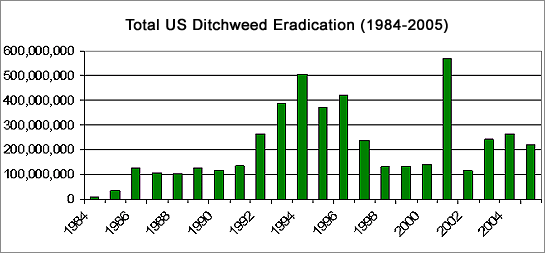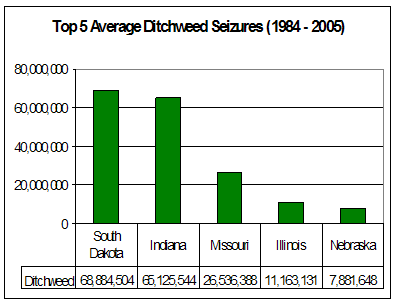WASHINGTON, DC — Vote Hemp, the nation’s leading industrial hemp advocacy organization, recognizes that the American news media strives to provide accurate information to their readers and viewers. In recent years there have been an increasing number of news reports about hemp farming legislation and the activities of industrial hemp advocates at the local and federal level. On average, the facts presented on industrial hemp are accurate; however, silly pot humor still manages to creep into some of the coverage.
Confusion between non-drug, industrial hemp varieties and psychoactive, drug varieties of Cannabis is fueled by these easy pot shots, ultimately aiding the myth that hemp and marijuana are the same. The DEA’s justification for threatening prosecution against anyone who grows the non-drug industrial hemp is that there is no distinction under federal law. Just saying that hemp is not marijuana is not enough to save a story. The media should take extra effort to provide straight, fact-based news coverage of industrial hemp legislation, lawsuits and grassroots campaigns that seek to bring the U.S. in line with the rest of the industrialized world that already grows hemp.
“We at Vote Hemp are tired of seeing TV news personalities giggle and act stoned when talking about industrial hemp,” says Eric Steenstra, co-founder of VoteHemp.com. “You can’t get high eating or talking about hemp, so don’t act stoned,” he adds in reference to giggling by hosts on NBC’s TODAY Show earlier this year. “It’s time to get past the giggle-factor. Legitimate news organizations have an obligation to treat industrial hemp as the serious issue it is and to not confuse it with drugs.”
“We constantly have to correct misstatements about the relationship between industrial hemp and marijuana,” says Alexis Baden-Mayer, director of Government Affairs for Vote Hemp. “The most recent offence was in Mike Luery’s July 11 report on San Francisco’s NBC Channel 11 which was laced with bad puns tainting any hope of serious coverage.”
Luery begins by saying that Cannabis can be used by farmers to make not only industrial hemp, but also marijuana. This is the equivalent of saying, “Canis lupus can be used by breeders to create not only chihuahuas, but also wolves.” Luery just isn’t making sense. Industrial hemp and marijuana are genetically distinct varieties, or sub-species, of the genus Cannabis. They each have been bred over thousands of years for very different characteristics. Like dogs and wolves, two kinds of Canis lupus, different sub-species of Cannabis can interbreed, but you would not mistake one for the other. More information is available here.
Chemically and genetically, marijuana and industrial hemp are opposites: marijuana has a lot of THC and very little CBD, both cannabinoids, while industrial hemp has a lot of CBD and almost no THC. THC (tetrahydrocannabinol) is the psychoactive component that gives marijuana users a high, while CBD (cannabidiol) effectively blocks THC’s psychoactive punch. This means that if you try smoking industrial hemp, all you’ll get is a bad headache.
Luery relishes using his favorite puns from the marijuana joke book to color the debate. For example, opponents’ arguments “went up in smoke,” and Chuck DeVore is the bill’s “self-proclaimed joint author.” The amazing thing is that — despite this kind of reporting — most California voters are aware of the truth about industrial hemp and don’t buy into the drug storyline. In fact, Vote Hemp’s recent Zogby poll showed that 71% of Californians support changing state law to allow hemp farming. See the news clip at: http://video.nbc11.com/player/?id=127962
“The story that should be told is that in the past six months new hemp products like Hemp Milk have been a huge success,” says Steenstra. “California companies lead the nation in manufacturing hemp products such as soap and snack bars. Meanwhile, AB 684, a bill in the California legislature to allow industrial hemp farming, is likely to succeed, and North Dakota farmers with state-issued hemp farming licenses have recently filed a landmark lawsuit against the Drug Enforcement Administration (DEA).”
In June, two North Dakota farmers filed a lawsuit in U.S. District Court for the District of North Dakota in an effort to end the DEA’s obstruction of commercial hemp farming in the United States. If successful, the legal action would result in licensed hemp farmers receiving assurances that no federal agency could hold them criminally liable under the Controlled Substances Act (CSA). Vote Hemp’s grassroots supporters are funding the legal action. A copy of the complaint is available here.
Last year, just over 48,000 acres of hemp were grown in Canada, primarily in Manitoba and Saskatchewan, provinces that border North Dakota. Hemp farmers in Canada averaged $250 CDN per acre in profit in 2006, according to the Canadian Hemp Trade Alliance (CHTA), an association of businesses, farmers and researchers. Hemp currently has a better profit outlook than any other crop in Canada.
Hemp is a good rotational crop, with the ability to reduce weeds in future cereal crops. Very few chemicals, if any, are required to grow the crop which is considered a good alternative to those with harmful environmental impacts such as cotton, tobacco and soy.
In the largest hemp-producing country, China, which grows 2 million acres annually, hemp hurds are processed into lightweight boards, and hemp fibers, already used in the paper and automotive industries, are finding new uses as reinforcement in plastics for products such as window frames and floor coverings. (In fact, some of these innovative products will be used on a large scale at the 2008 Olympic Games in Beijing, according to news reports.) In Sweden, companies including IKEA, Volvo and Saab have shown interest in hemp fibers and hurds for use in vehicle interiors and furniture. In the UK, Germany and the Netherlands, considerable investments are being made by governments and private businesses to utilize hemp fiber in composites that are used to manufacture auto parts for BMW, Chrysler, Ford and Mercedes. In Canada, Germany and Japan, businesses are investigating reinforcing Polylactide (PLA) plastic with hemp fibers in order to widen the technology’s field of applications.
# # #
Vote Hemp is a national non-profit organization dedicated to the acceptance of and a free market for industrial hemp and to changes in current law to allow U.S. farmers to once again grow hemp commercially.

